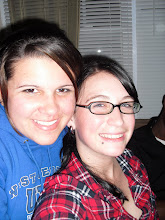I have no idea how to approach these. I'm not used to writing poetry of this sort. I don't know how to be sentimental without feeling overly cheesy and cliche.
So naturally, I went on good old google and searched for tips on how to write one.
www.mahalo.com (which from what I gather is Hawaiian eHow) gives these helpful tips (complete with grammatical errors):
- An elegy poem is a poem written on the occasion of someone's death. How to Write an Elegy Poem explains everything you need to know to create a lasting work of art.
-
Writing an Elegy Poem Tips
- Fitting subjects includes the death of a loved one or a president.
- The poem must be somber in tone.
- There is no set form, but a good elegy should include a metrical pattern or rhyme scheme.
- Try to create distinctive imagery.
- Include some of your own thoughts about death and dying
An elegy is a poem to memorialize someone beloved or respected who is deceased. One of the most famous elegys ever written is Walt Whitman's elegy for Abraham 
- Step 1
Describe when and why you are writing the poem. Explain where you, the author, are now and why you are looking back. Depict your
relationship with the deceased. Pastoral references, like portraying the author and departed one as shepherds, are commonly used in an elegy as metaphors for the relationship.
- Step 2
Explain how the person died and express not just grief, but anger and astonishment that the person has passed. Include the cause of the death. Let the means of death inspire the poem's imagery; for example, if the person drowned, incorporate the sea as a character or symbol.
- Step 3
Include attempts to deny the reality of the person's death or resurrect the person. Eventually accept of the unavoidability of the loss.
- Step 4
Reflect on how the person's death has impacted the world. Ask how the world can go on without this person. Imagine what this person could have contributed that will never be fulfilled.
- Step 5
Meditate on the nature and inevitability of death within the cycle of life. Conclude the elegy with a degree of comfort and reassurance in the certainty of how life progresses and a hope of the afterlife.
There are some good points, though. Step five helps out a bit, guiding me in the direction of the poem at least. But I was still not satisfied. So once again, I searched a bit more. This times I googled "How to be sentimental without being cliche." No luck there. I tried various versions of that phrase, but to no avail. Looks like I'm on my own on this one.
